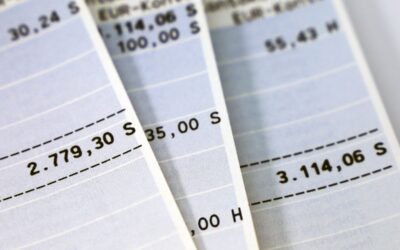Small businesses often begin as passion projects. You start doing something you love and then discover a market for your products or services. You may begin selling those products or services, recognize that you need to purchase more supplies, and hire a part-time employee to keep up with demand. Then you start doing a bit of advertising and realize that your garage is no longer big enough to serve as the center of your operation, so you decide it’s time to expand.
As your business grows, so does the need to keep track of everything in an organized manner. When you first started out, you were paying for business expenses out of your personal bank account and tracking your accounts payable and accounts receivable using different methods or separate software programs. But the health of your now-thriving business depends on understanding its financial situation.
That’s where a general ledger comes in. It’s the bedrock of any thorough business accounting system and a powerful tool for ensuring your finances stay on track.
What is a General Ledger?
A general ledger records every financial transaction conducted by your business. It provides a method for tracking all the money that comes in or goes out. Typically, a general ledger is broken down into several accounts that are organized by transaction type. These accounts are numbered, and many businesses maintain a separate document, called a chart of accounts, as an index.
Types of General Ledger Accounts
The general ledger for your business may consist of many accounts, depending on the type of business you own, the size of your business, and the structure of your business. A large company may have thousands of different general ledger accounts. But regardless of the total number of accounts, their purpose is to categorize your financial transactions.
For example, a small business may have general ledger accounts that track inventory, sales, employee salaries, and rent. Larger businesses might have accounts for earned interest, stocks, and real estate. For most businesses, these accounts are grouped into five main categories in your ledger: assets, liabilities, equity, revenue, and expenses.
Why General Ledgers Matter
Because a general ledger contains all of your transactions, it also serves as the basis for financial reporting and tax filing, among other things. Think of it as the building block of your financial record-keeping system. It can help you detect and correct any errors in your books and provide the information you’ll need to demonstrate your business’s financial health to investors, lenders, and others.
1. Financial Statements
You’ll use the details from your general ledger when you need to prepare financial statements and reports, like income statements, balance sheets, and cash-flow statements. These documents provide you with crucial information about the financial health of your business. They’re also handy tools for demonstrating the value of your business to outsiders, like investors or loan officers.
2. Tax Filing
Your general ledger will incontrovertibly prove its worth when tax season comes around. Because the ledger contains all of your expenses and income in one place, it streamlines the process of completing and filing your taxes. If you’re doing your business taxes yourself, you’ll rely heavily on the general ledger; hiring a tax professional is one of the first documents they’ll ask you for.
3. Easy Transaction Viewing
As already noted, the general ledger is a master record that contains information about every transaction your business conducts. This means that anytime you need information about a specific transaction, you’ll know exactly where to go. Most accounting software programs have search functions that allow you to find specific transactions or entire groups of transactions sorted by category, date, or other attributes.
4. Catch Problems Early
There are several ways that maintaining a general ledger can help you catch mistakes or problems early. First, it uses double-entry bookkeeping, which means that for every transaction, you’ll be tracking debits and credits, making incorrect entries easier to spot. Similarly, it allows you to periodically prepare trial balances, a worksheet that ensures that your bookkeeping for a given period is mathematically correct. If your trial balance is off, you only need to review transactions for that time to find the mistake. Finally, it allows you to isolate a group of transactions if your revenue or expenses for a certain period have gone dramatically up or down.
5. Make Projections
The general ledger is the one place that contains all of your financial details. This means anytime you want to make projections about your business based on past data – revenue projections, supply cost projections, seasonal projections – you will use the information from your general ledger to do so.
How Remote Quality Bookkeeping Helps With General Ledgers
Setting up a general ledger can feel like an overwhelming prospect. If you don’t have a natural affinity for spreadsheets or a thorough understanding of the differences between liabilities and expenses, you might be tempted to forgo the idea of a general ledger altogether. But the truth is, maintaining a general ledger doesn’t have to be an extraordinarily complex undertaking once you have everything set up.
Plenty of business owners would prefer to leave the spreadsheets and general ledgers to someone else. If this describes you, then you’ve come to the right place. Remote Quality Bookkeeping offers affordable small-business bookkeeping and accounting services. We can set up and maintain your general ledger, leaving you to focus on whatever made you passionate about starting your business in the first place.
Interested in worrying less about trial balances and general ledgers? Contact us to schedule a free demo so that we can demonstrate exactly how our bookkeeping services can help your business.


